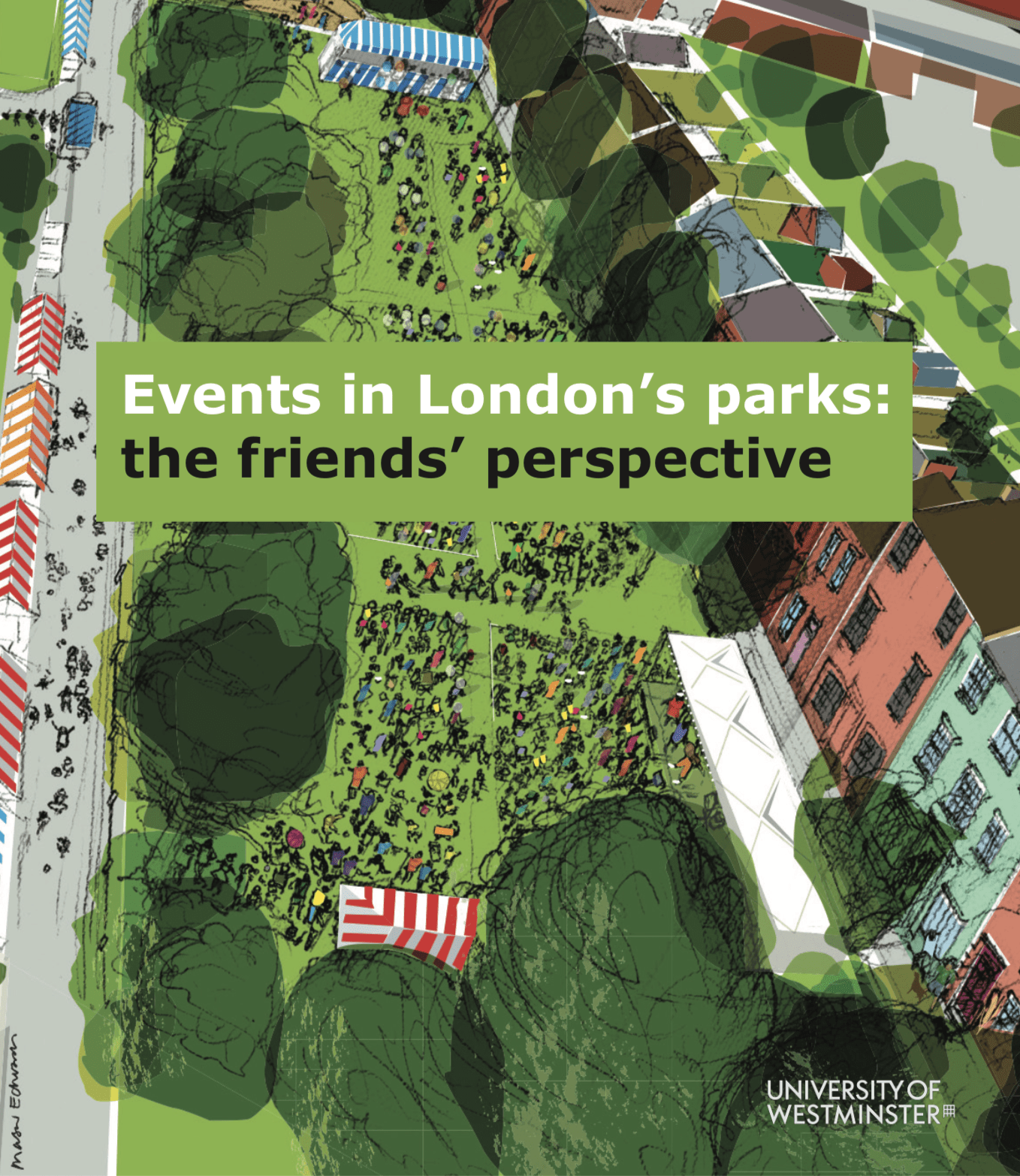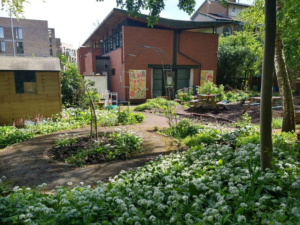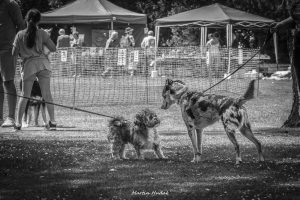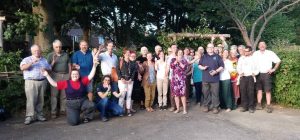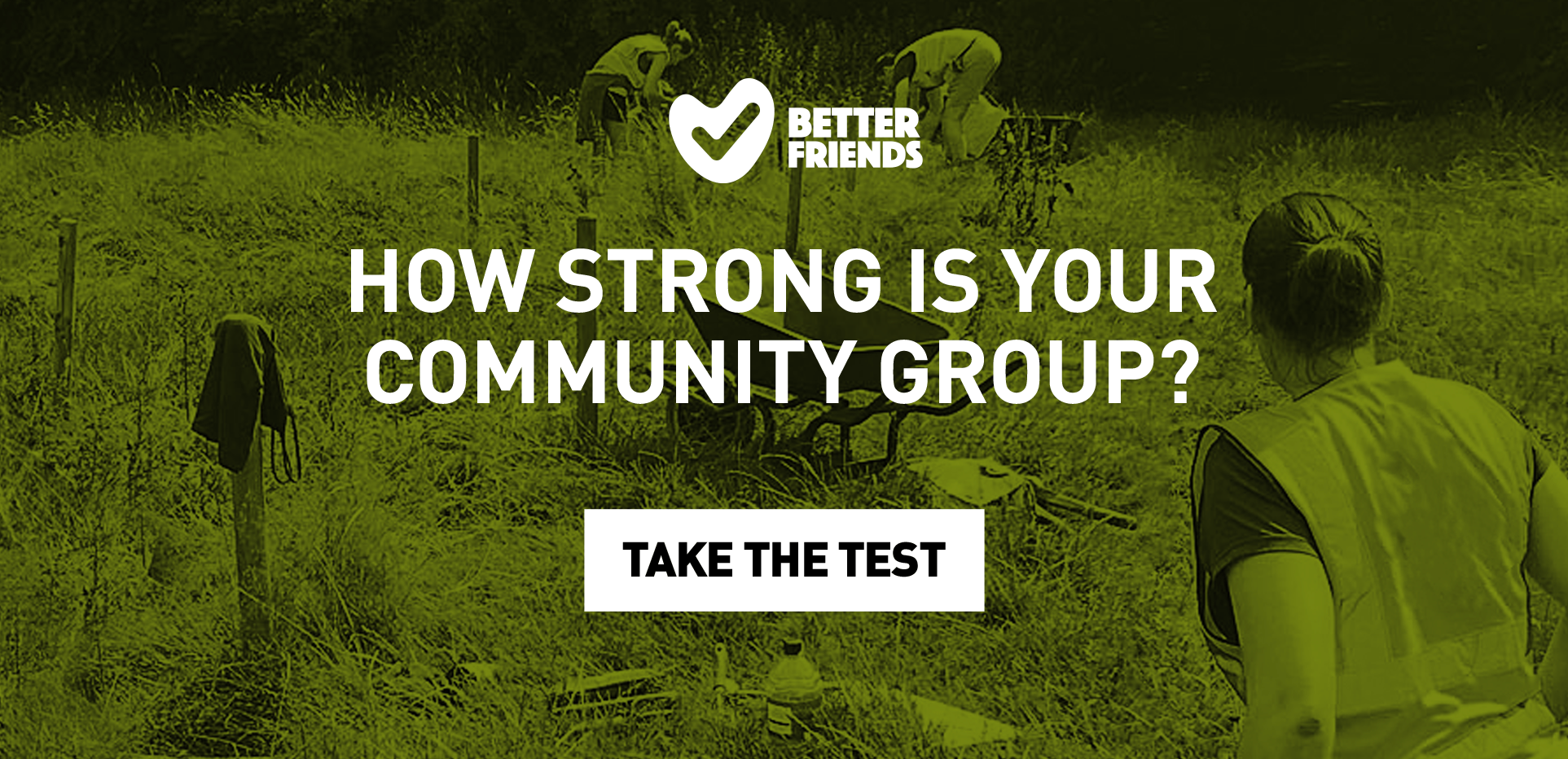A new report with extensive contributions from London Friends of Parks groups has been released this week. Looking at the increasing use of London’s Parks and green spaces for events. The report has an introduction by Dave Morris chair of the National Federation of Parks and Greenspaces and is co-authored by Dr Andrew Smith and Dr Goran Vodicka from the University of Westminster as part of the Festspace project funded by Humanities in the European Research Area (HERA).
The 38 page report gives a very useful snapshot of where things are up to and it’s food for thought given 2020 is a write-off in terms of most park events. We now have time to take stock and ensure our parks are used wisely in future. Or do we? If indoor venues continue to be redundant due to the COVID-19 pandemic, eyes may turn to our parks as larger sites could allow innovative social distancing measures to be operational. Witness these recent performances from Wrongsemble staged by SlungLow using a flat bed truck in a car park and in a park
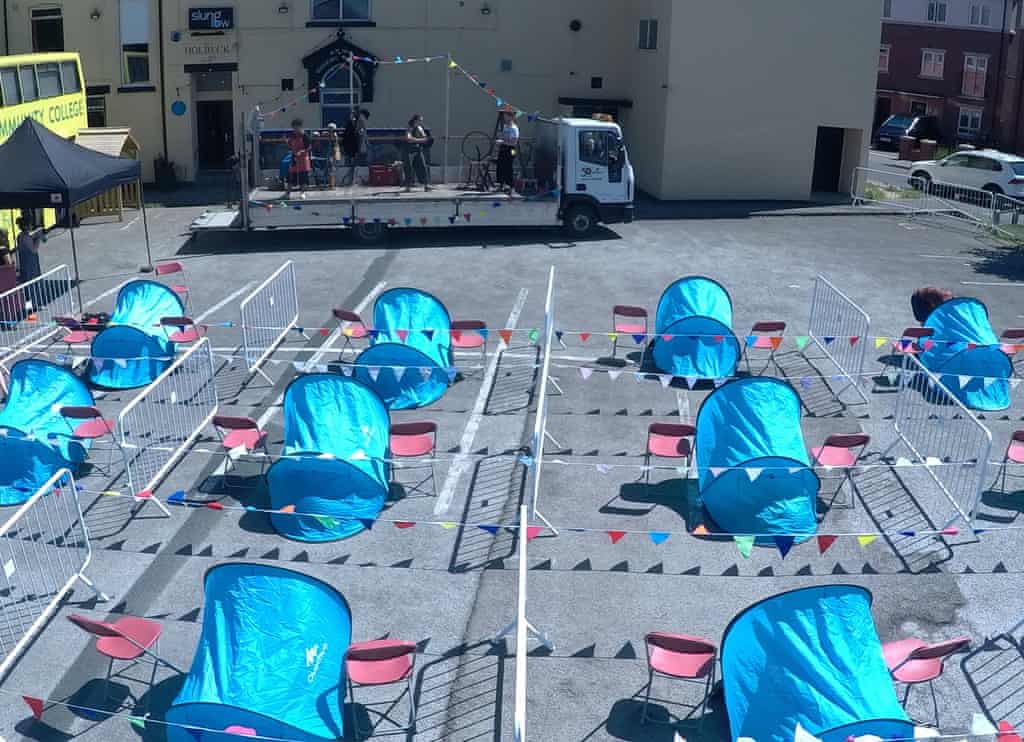
Below we summarise the major standout points for those short on time.
Click here to read the full “Events in London’s Parks: The Friends’ perspective” report.
The most common events were those dedicated to gardening and planting, highlighting the role of urban green spaces as productive places which promote horticulture and nature.
Nature-oriented events were the most commonly mentioned type of event organised by Friends followed by:
- Gardening activities
- Clean Ups
- Free Concerts
- Art Activités
- Free Community Fairs
“…the aim is to have something each month that will appeal to a wide range of the local community – volunteer gardening, history walks, bird walks, park spring clean.”
Reasons why Friends Groups put on events:
To engage local communities and ‘foster a sense of pride’ and to ‘celebrate’ together.
Profits from events are often the only funding source for a Friends Group, or they are ploughed back into the park or green space. Friends Groups tend to organise a big event once every 2 or 3 years.
PAID EVENTS.
The most common type of paid event was a music festival or fun fair. Twenty-five percent of Friends Groups reported a commercial event in their London park and there was a rise in staging winter events. The number of open-air cinema and theatre shows is rising, these seem popular with locals and don’t have too much impact on the park or the users. Larger green spaces are more popular than smaller ones for staging events.
Richmond Park appears to have the most commercial events; reporting 170 events or paid activities at the site each month. Most of the paid events utilised the parks large open space rather than its status as a natural habitat.
POSITIVE IMPACT
All friends groups who responded said paid events brought some positive impact. The most positive were fun days, fairs and carnivals. Reasons given are the support these events give to local organisations who have stalls and how it brings the community together. Free events were preferred because of their ability to unite a neighbourhood, these events promote inclusivity as fewer people are excluded due to the cost of entry.
The next most popular events were:
- Concerts
- Gardening Events
- Nature walks
- Funfair/circus
Another positive aspect of events is that they get more people to visit their local park or green space. Many Friends Groups felt this a very positive benefit as it raises the profile of their park and helps break down any nervousness or reluctance to use a site. The hope is new visitors will return in future to enjoy the space and this is something Friends Groups want to see.
Attending an event in a park will often lead to a person becoming more involved with the site in future; whether that is as a volunteer, a fundraiser or perhaps meaning they take a bigger interest in responding to how the site is managed and suggesting ways to improve it.
“At Lordship Rec, a renowned example of community- led management, the Friends group felt that their events empower community groups and their members and ‘help them see that it’s our park and we are the local community taking responsibility for it’.”
NEGATIVE IMPACT
- Noise (from actual event but also extra traffic/parking and also people entering and leaving the site)
- Damage to park environment such as grass and planting
- Increase in littering
- Restricted access as areas fenced off. Some parks had large areas out of bounds for 6 months of the year
In the larger London parks, music events were the most negatively received by Friends groups, mainly due to damage to turf and soil compaction, especially around tree roots. Winter festivals appeared to have a bigger negative impact on these issues and they often last longer than summer events.
“One winter event lasted 28th Nov 2018 to 5th January 2019 which meant ‘nearly half the park was closed off with 10 foot fences for such a long time’.”
Boot camps and large Park Runs were also a cause for concern at some parks, mainly
“due to fundamental differences between users. One group highlighted the contrast between ‘people wanting peace and contemplation, nature and wildlife; and sports people rampaging up and down shouting’.”
A worrying aspect is the parks with the most events are often
“in areas where few local people had access to gardens … ‘many people in our area live in flats and don’t have private access to outdoor space, so when a funfair or circus comes for 10 days and takes up a large portion of the park then it restricts access to outdoor space’.”
Another often overlooked issue is having many events in the park can mean
“that parents are pressured to spend money when they visit”
INVOLVEMENT IN DECISION MAKING
“Nearly half of groups reported they had formally objected to event proposals in 2019”
Two-thirds of groups said they were not consulted or involved in the organising of events in their park. Groups that were involved in the decision-making process took part in
“regular council-led park management groups for ‘all stakeholders’ or public consultation meetings. The latter were often criticised: ….. Sub text – how little do we have to spend to keep you lot quiet?’”
The most positive involvement in decision-making processes was outlined by the Friends of Lordship Rec:
‘The park’s community/council co- management body meets monthly and oversees and discusses all repairs, improvements and major activities/events in the park. In particular the Friends are formally consulted by the Council over every application to hold an event about whether we have any objectionto the event as a whole (we do occasionally) or seek any specific conditions to be put on the event (which we suggest sometimes and the Council often agrees).’
HOW INCLUSIVE ARE EVENTS?
Friends Groups events:
‘ …. introduce a greater variety of people to the park but there may be other events that would draw a more diverse group to better match the socio-demographics of the area.’
Music and Religious Festivals tended to attract people who are not everyday users of the green space, but it wasn’t clear whether these people will return to enjoy the natural space in future.
Greater inclusivity could possibly be achieved
“by involving a range of groups and communities in organising events, as highlighted by this response: ‘Our events are always fully integrated and inclusive with local service providers, charities, primary schools, churches and the local community.’”
CONCLUSION
“Events, particularly those that are free to access, have a series of very positive impacts on parks. They bring people in, diversify users, boost awareness and generate income that can be used to help maintain parks. The prevalence of horticultural and nature-oriented events also highlights their role in promoting pro-environmental behaviours. The most positive effects seem to stem from instances where Friends and other local groups were involved in organising events.
Friends groups want to stage more events, but are prevented from doing so by limited organisational capacity, low demand and unhelpful procedures.
Most of the negative aspects related to large scale events and parks that stage a large number of them which restrict access to general park users for significant periods during the year.
“Finally, our report suggests that events have an important role to play in making parks more inclusive. Festival and events can attract a wider set of users in terms of socio-economic and ethnic profiles; and they produce places where people from different backgrounds encounter one another. Park events can help to build more cohesive and tolerant communities by ensuring marginalised people are visibly represented in prominent public spaces. However, more needs to be done to ensure event programmes represent the interests and profiles of surrounding neighbourhoods.”

